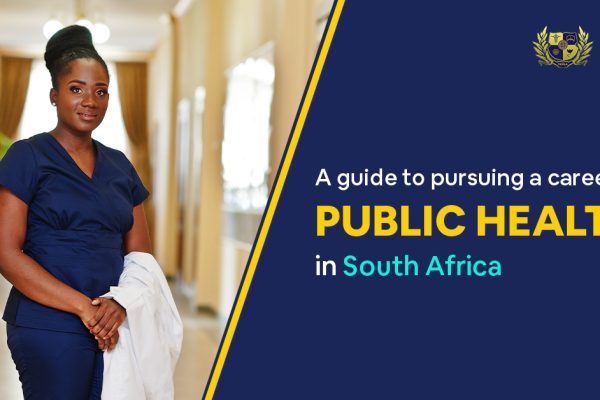|
Tired of Reading? Please listen to the blog
|
Blog Summary
A Master of Public Health (MPH) degree offers transformative career opportunities and a chance to make a meaningful impact on global health. This degree equips students with essential skills to tackle urgent public health challenges, from disease prevention to promoting health equity. The blog explores the exceptional benefits of earning an MPH, such as diverse career options, community impact, financial rewards, and leadership potential. Graduates can pursue roles in government, non-profits, and academia, making a real difference in public health systems worldwide. Learn how an MPH can unlock new horizons for your career and future.
- Introduction to the Master of Public Health (MPH)
- Advantages of Earning a Master's Degree in Public Health
- Core Curriculum: Building Skills for Impact
- Unlocking Career Potential: Diverse Opportunities with an MPH
- The Case for MPH: Transforming Your Career and Community
- Unique Benefits of an MPH Degree
- Admission Requirements for MPH Programs
- How to Apply for a Master's in Public Health
- Important Deadlines
- Conclusion
Introduction to the Master of Public Health (MPH)
In today’s rapidly evolving world, the importance of public health has become increasingly evident. What is a Master of Public Health? It is an advanced degree that equips students with the knowledge and abilities to address complex public health challenges. With a strong emphasis on leadership, research, and community engagement, this degree prepares graduates to contribute significantly to public health systems.
Advantages of Earning a Master’s Degree in Public Health
Career Opportunities
Earning a Master of Public Health (MPH) opens up several career paths across sectors such as government, healthcare, non-profits, and academia. Roles such as public health manager, epidemiologist, health educator, and biostatistician play key roles in enhancing community health. With a projected 14% growth in the public health field from 2019 to 2029, the sector offers strong career stability driven by factors such as an aging population, increased health awareness, and expanding public health initiatives. Professionals with an MPH enjoy considerable career growth and advancement opportunities, with experience and specialization further boosting their prospects.
Community Impact
An MPH extends beyond individual career benefits; it empowers graduates to make a meaningful difference in communities. Public health professionals promote health awareness, prevent diseases, and advocate for equitable access to healthcare. For example, MPH graduates often lead initiatives to increase vaccination rates or raise mental health awareness in underserved areas. This degree equips graduates to address pressing challenges, such as infectious disease prevention and reducing health disparities.
In addition to making a positive impact on communities, an MPH also offers significant financial incentives.
Economic Benefits
Investing in public health brings significant economic rewards. Preventive measures, such as immunizations, can save approximately $3 for every dollar spent, illustrating the cost-effectiveness of public health interventions. By contributing to disease prevention and reducing healthcare costs, MPH graduates not only advance their careers but also drive community-focused initiatives that lead to long-term societal benefits.
Core Curriculum: Building Skills for Impact
The Master of Public Health Course encompasses diverse subjects that prepare students for real-world challenges. Key areas of study include:
- Epidemiology: The study of prevalence and contributing factors in populations crucial for developing effective public health interventions.
- Biostatistics: The application of statistical techniques to analyze health data, enabling professionals to make data-driven decisions.
- Environmental Health: Understanding how environmental factors impact health, focusing on pollution, waste management, and occupational hazards.
- Health Policy and Management: Understanding the intricacies of health systems, policy development, and management practices that ensure efficient healthcare delivery.
In addition to core subjects, students can often specialize in global health, health education, and maternal and child health, further enhancing their expertise. For example, MPH graduates can address global health challenges, such as Dr. Paul Farmer, co-founder of Partners In Health, who has transformed healthcare access in Haiti and beyond. These subjects are crucial because they equip students with a deep understanding of how to analyze and respond to health data (biostatistics), implement effective interventions (epidemiology), and manage public health programs (health policy and management). This comprehensive foundation prepares graduates to tackle real-world public health challenges effectively.
Unlocking Career Potential: Diverse Opportunities with an MPH
One of the most compelling reasons to pursue a master’s degree in public health is the vast array of career paths available. MPH career opportunities are diverse and can be found in various sectors, including government agencies, non-profit organizations, healthcare institutions, and academic institutions.
Some typical roles include:
- Public Health Manager: Responsible for planning, implementing, and evaluating health programs within communities.
- Epidemiologist: Analyzes data to identify trends and causes of diseases, guiding public health policy.
- Health Educator: Develops educational materials and programs to promote healthy behaviours in communities.
- Biostatistician: Applies statistical techniques to interpret complex health data and inform research initiatives.
According to a report by the Association of Schools and Programs of Public Health (ASPPH), professionals with a master’s degree in public health enjoy substantial career growth and advancement opportunities. Experience and specialization can further enhance their prospects, highlighting the rewarding career paths available in the public health field.
The Case for MPH: Transforming Your Career and Community
Pursuing an MPH offers many benefits, from addressing urgent health challenges to boosting your career. The degree equips students with essential skills to tackle urgent health issues such as pandemics, chronic diseases, and health disparities. The program emphasizes critical thinking, research methodologies, and effective communication, essential for driving change in public health policies and practices.
Furthermore, the global health landscape is evolving. The outbreak of the COVID-19 pandemic emphasized the critical need for skilled public health professionals. According to a World Health Organization (WHO) survey, countries are actively seeking individuals with expertise in epidemiology, health policy, and health systems strengthening. As public health initiatives gain traction, those with a Master of Public Health will be in high demand.
A 2022 report indicated that 70% of public health professionals believe that the need for their services will only continue to increase in the next decade, emphasizing the sector’s resilience and importance.
Unique Benefits of an MPH Degree
- Networking Opportunities: Interacting with experts in the field allows pupils to build valuable connections that can lead to job placements and collaborations.
- Access to Specialized Knowledge: The MPH curriculum provides insights into the latest research, policies, and practices, enabling graduates to stay ahead in the evolving public health landscape.
- Leadership Potential: MPH programs often cultivate leadership skills, training graduates to take on influential roles in public health organizations.
- Global Impact: Graduates can work on international health initiatives, contributing to health improvements worldwide.
Admission Requirements for MPH Programs
Understanding the admission requirements of the MPH program is essential for prospective students. While requirements may vary by institution, common prerequisites typically include:
- Bachelor’s Degree: A degree from an accredited institution, preferably in a related field such as health sciences, social sciences, or biological sciences.
- GPA Requirements: Most programs have a minimum requirement, often around 3.0 on a 4.0 scale.
- Standardized Tests: Some institutions may require GRE scores, although many have adopted a test-optional approach.
- Letters of Recommendation: Applicants must usually submit 2-3 letters from academic or professional references.
- Personal Statement: A well-crafted essay outlining the applicant’s motivation for pursuing an MPH, career goals, and relevant experience.
Knowing these requirements helps streamline the application and enhance the likelihood of acceptance into one of the best Master of Public Health programs available.
How to Apply for a Master’s in Public Health
For those interested in advancing their education, understanding the application process for a Master’s in Public Health is essential. It typically involves the following steps:
- Research Programs: Identify institutions that offer specialized MPH programs aligning with your career goals.
- Prepare Application Materials: Collect your academic transcripts, secure letters of recommendation from mentors or professionals, and craft a compelling personal statement that outlines your motivation for pursuing an MPH.
- Complete the Application: Most schools utilize an online application portal, allowing you to submit materials electronically.
- Interview (if applicable): Some programs may need an interview during selection.
By following these steps, applicants can successfully navigate the application journey, paving the way for a fulfilling educational experience.
Important Deadlines
Keeping track of Masters in Public Health application deadlines is essential to ensure timely submission. Most programs have specific deadlines for each admission cycle, typically between December and February for fall admissions. It’s vital to check individual program websites for exact dates and requirements to avoid missing opportunities.
Potential students should also consider financial aid deadlines in addition to application deadlines. Many institutions offer scholarships, grants, and assistantships that can notably reduce the economic burden of obtaining a master’s degree.
Conclusion
Pursuing a Master of Public Health is a significant step towards a rewarding career that improves public health outcomes. With a comprehensive understanding of the benefits of an MPH degree, potential students can make informed decisions about their education and career paths. As public health continues to evolve, professionals with this degree will play a crucial role in shaping healthier communities.
The rising demand for qualified public health professionals, coupled with a wide array of jobs with a public health master’s degree, positions graduates for success in various sectors. If you are considering a career in public health, now is the ideal moment to explore your options and take the first step toward making a lasting impact on global health.
By investing in your education and pursuing an MPH, you’re enhancing your career prospects and positioning yourself as part of a vital movement towards a healthier, more equitable world. The future of public health is bright, and you can be at the forefront of this critical field.











